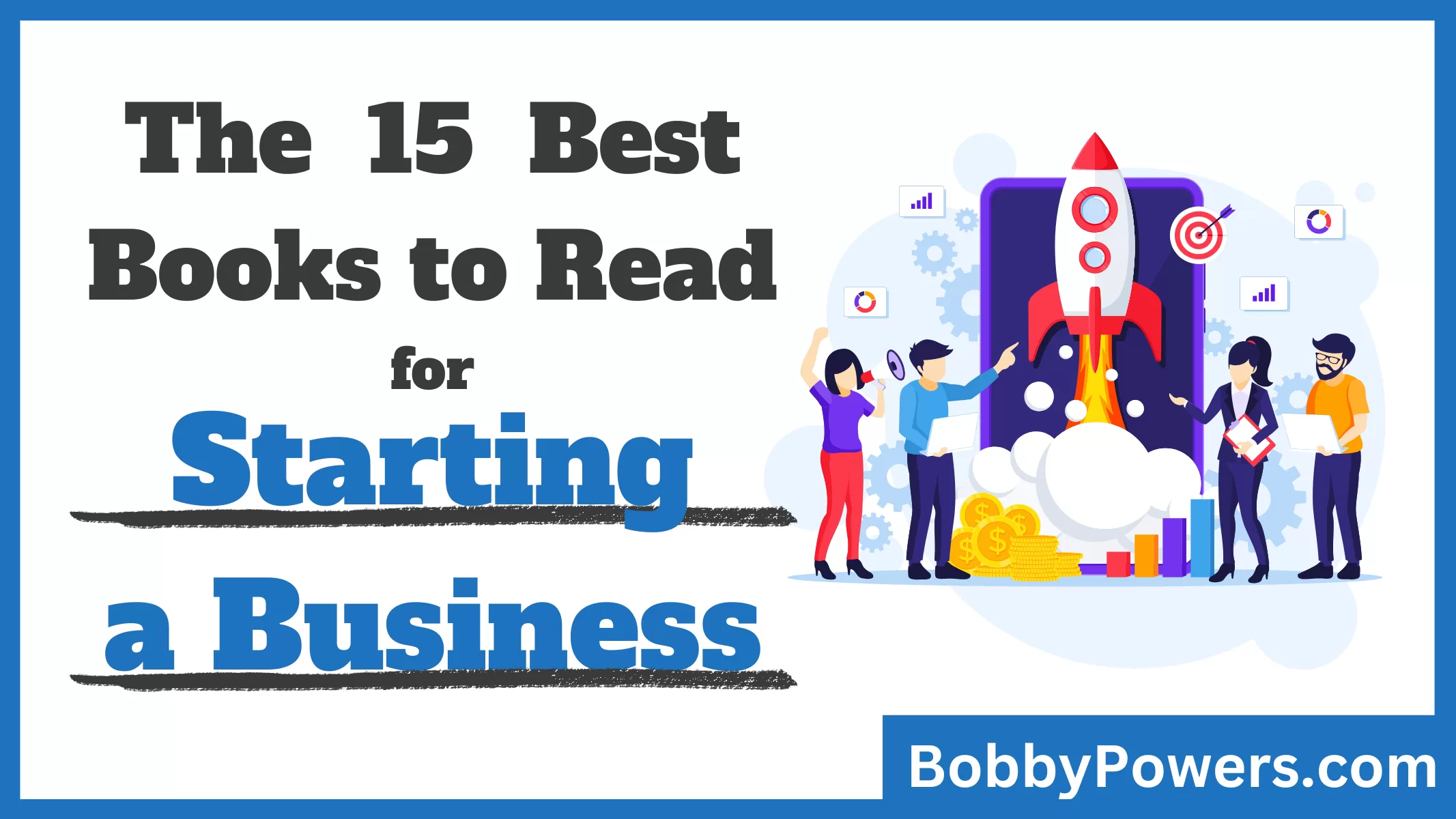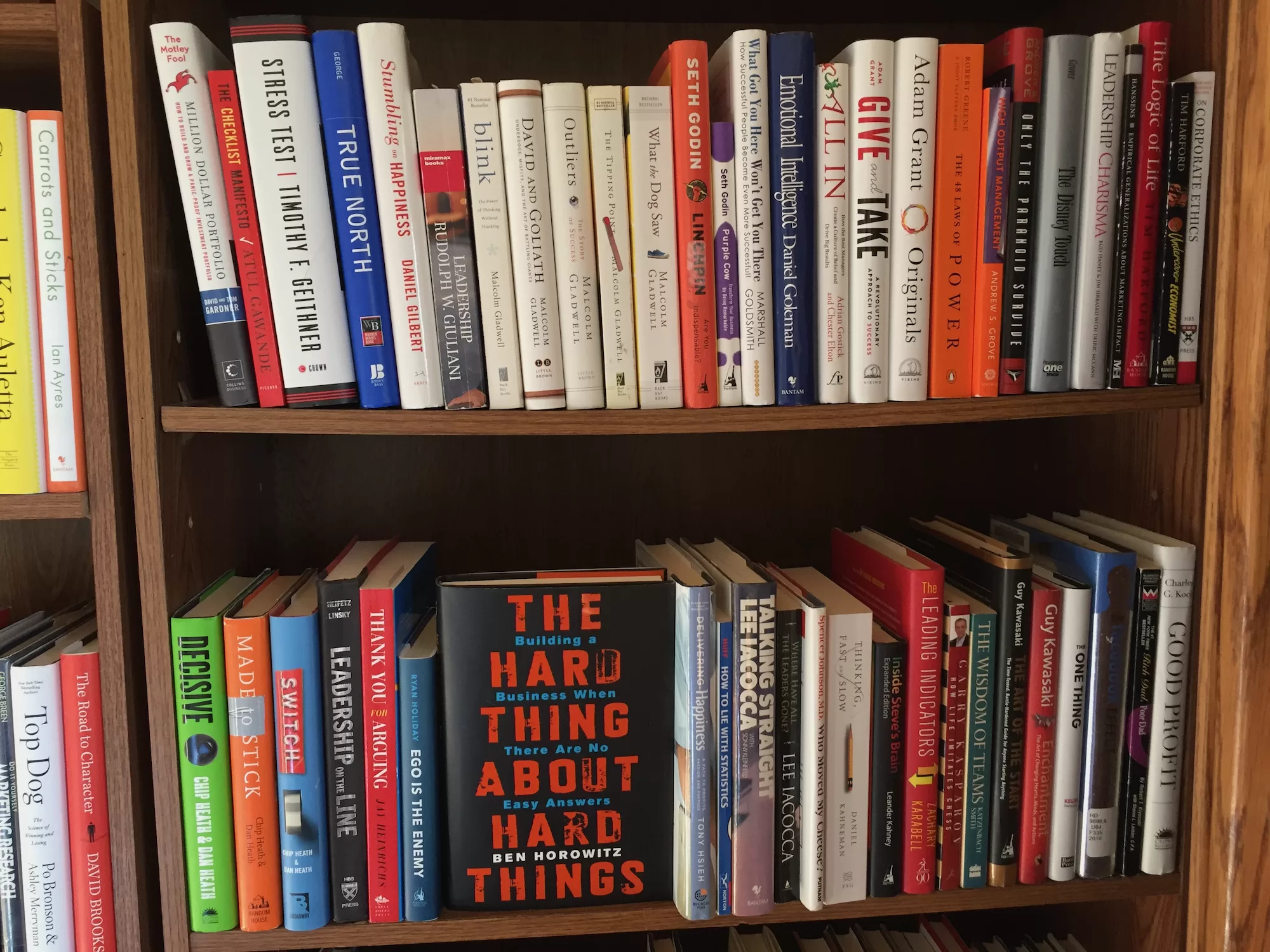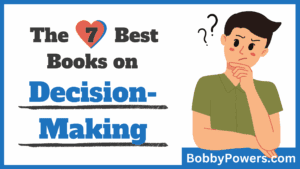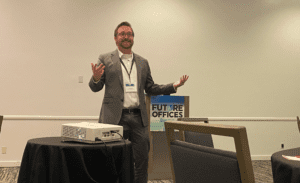The 15 Best Books to Read for Starting a Business

Several friends have asked me what books they should read to learn about entrepreneurship. After all, starting a business is difficult even in the best of circumstances. It's smart to learn from others' mistakes.
From everything I've read (including the 1,000+ books I've read in the past 16 years), here are the best books I've found for anyone who wants to start their own company.
For each book, I've shared a short summary, an impactful quote, and a few bullet points of my biggest takeaways. The books are subdivided into four categories:
- Founder Memoirs: Stories straight from a startup founder
- Company Profiles: Stories told about a company from the outside looking in
- Tactical Advice: Practical tips on how to create a business
- The Tough Stuff: Books about the hardest aspects of entrepreneurship
1. Founder Memoirs
Book Summary
Joel Primus founded Naked Boxer Briefs, a company that raised over $17M and went public. In this book, he shares vulnerable lessons about his journey creating the company. The writing isn't quite as polished as what you'll find in other books about entrepreneurship, but the stories are more authentic and the lessons are more relatable.
I especially enjoyed the last half of the book, when Primus talks about the toll his startup took on his health and relationships and the lessons he learned along the way. Everyone knows entrepreneurship is hard, but this book offers an insider's look into exactly how hard it can be.
"If you'd told me after my first year of university—that 19-year-old, proud, virgin-runner-geek who wore hand-me-down clothing—that in three years I'd be running a company in the high-fashion underwear business, I'd have laughed at you."
-Joel Primus
Key Insights
- While building his company, Primus lost two business partners, poured tens of thousands of dollars into his venture, maxed out his credit cards, and ended up in the hospital twice because he had run himself so ragged.
- You must maintain a dogged focus on your customers' needs. From focus groups to customer interviews, you must do everything possible to collect intel from customers and prospects before you make drastic product decisions. Staying in tune with your customers can save you thousands of dollars and months of pointless work.
Book Summary
Knight’s foray into writing produced one of my favorite business memoirs. The Nike co-founder reveals the struggles he faced when starting the iconic sports apparel company, including almost losing his company.
Shoe Dog is a great peek into the realities of entrepreneurship.
"The cowards never started and the weak died along the way. That leaves us, ladies and gentlemen. Us.” -Phil Knight
Key Insights
- Even the most famous and successful founders had a rough go of it.
- Business success is a rollercoaster of massive ups (if you're lucky) and crazy-making downs. You must survive the downs to be around to make money from the ups.
- Entrepreneurship requires a thousand tradeoff decisions: Which suppliers are you willing to work with? What are you willing to do to get ahead?
2. Company Profiles
Book Summary
Amazon is arguably the most fascinating company in the world. In The Everything Store, journalist Brad Stone pulls back the curtain to reveal interesting details about the company's founding and the customer obsession of its founder.
You'll learn what drives CEO Jeff Bezos and how he came to create the online retailer. I love business profiles of top leaders and companies, and this is one of the best out there.
“You have to start somewhere. You climb the top of the first tiny hill and from there you see the next hill.” -Jeff Bezos
Key Insights
- Get a toehold in a narrow field (like books, in Amazon's case), then expand from there.
- Rigorously evaluate every prospective employee to join your company. Businesses live or die on their talent.
- Bake your core values ("leadership principles," in Amazon parlance) into everything you do.
Book Summary
PayPal is worth billions, but it's also one of the most influential tech companies in history. Early PayPal employees went on to create many Silicon Valley darlings, including YouTube, Tesla, Yelp, LinkedIn, Palantir, SpaceX, Yammer, and many other successful startups.
But life wasn't always easy at PayPal. The company began as two separate firms (X.com and Confinity) that merged in 2000. PayPal had to survive MANY make-or-break moments to become the company it is today, and this book relives those moments.
“PayPal's founding is one of the great, improbably stories of the internet age. Two decades later, living and shopping in an era in which the 'e' in 'e-commerce' is redundant, it's easy to take a service like PayPal for granted. When a couple taps can summon a car to our doorstep, sending money over the internet hardly seems groundbreaking. But it's a mistake to assume that the technology underlying digital money transfer was easily built, or that PayPal was destined for success." -Jimmy Soni
Key Insights
- A LOT happens in a very short time in a startup. It seems like PayPal (X.com) lived a lifetime in 1999 alone, then another lifetime in 2000.
- To change the world, you need to do something abnormal. So it's no surprise that the work culture and expectations at PayPal were super intense.
Book Summary
Although not specifically about startups, this book contains so many general business lessons that every aspiring entrepreneur should read it.
Collins and his research team reviewed 15 years of stock market data to determine which businesses were able to sustain great results for the long haul. But more importantly, he explains what specific factors enabled those companies to achieve such success.
“Greatness is not a function of circumstance. Greatness, it turns out, is largely a matter of conscious choice and discipline.” -Jim Collins
Key Insights
- The best companies stick to one core area of competence and master it.
- Each entrepreneur needs to determine intentional small steps that help drive your "flywheel" of business success to spin faster. Success often involves incremental, deliberate progress—not massive changes.
- Success companies are led by "Level 5 leaders"—humble CEOs who run the business with dogged perseverance. Their focus is on the company, not themselves.
Book Summary
Stone's earlier book The Everything Store (mentioned above) tells how Amazon forever changed the world of retail. This one focuses on a newer class of industry disrupters: Uber and Airbnb.
You'll learn how both companies broke conventional rules (and some laws too) to define the sharing economy that took off in the U.S. in the late aughts and early 2010s.
“If you want to build a truly great company you have got to ride a really big wave. And you’ve got to be able to look at market waves and technology waves in a different way than other folks and see it happening sooner, know how to position yourself out there, prepare yourself, pick the right surfboard—in other words, bring the right management team in, build the right platform underneath you. Only then can you ride a truly great wave. At the end of the day, without that great wave, even if you are a great entrepreneur, you are not going to build a really great business.” -Brad Stone
Key Insights
- Some of the best companies broke the rules to get ahead. But if you decide to skirt the rules, you need to be careful about how you do so. Lawsuits and bad press can take down any company.
- Sometimes the best business ideas come from failed companies that decide to pivot, then pivot, then pivot again. Don't be afraid to drastically modify your business model or even jump into an entirely different industry.

3. Tactical Advice
Book Summary
Startup CEO is the best tactical manual I've found for starting a business. It covers everything from pitching your product/service to hiring your first employees to budgeting expenses.
Blumberg shares advice he learned from founding a company called Return Path back in 1999 that he eventually grew to over $100 million in revenue per year. His advice is specific, practical, and nuanced. If you're thinking about creating a company, start here.
“Startups aren’t about reading the crystal ball; they’re about your ability to react.” -Matt Blumberg
Key Insights
- One of the first things you must do is get your story down: Why are you in business? WHAT are you trying to deliver to WHO? WHY should people go with your product/service instead of a different one?
- Build a capable board of directors who can advise you when you run into difficult choices.
- Your employees often have the best product ideas. Listen to them.
Book Summary
Guy Kawasaki was one of the main marketers who helped Apple's MacIntosh computer take off, and he's written over a dozen books.
Kawasaki believes, “Entrepreneur is a state of mind, not a job title.” In this book, he teaches you how to create that state of mind, including tips for how to think about your company's mission, values, product, and story.
”If you can’t describe your business model in ten words or less, you don’t have a business model.” -Guy Kawasaki
Key Insights
- The best reason to start a business is because you're trying to improve something in the world. Having a sense of meaning and purpose will not only drive you as an entrepreneur, but it will drive your customers to buy what you're selling.
- Rather than setting random projections for how much you'll sell (which tend to be wildly optimistic), build a "bottom-up" financial model. Calculate exactly how many calls/activities it takes to generate a sale, then determine how many calls/activities you can actually do in a year. That will yield a much more reasonable projection.
Book Summary
After co-founding PayPal, Peter Thiel funded Facebook, LinkedIn, and SpaceX, among other successful start-ups. This book is Thiel's instruction manual for thinking like an entrepreneur.
The most fascinating idea in the book is Thiel's description of a "creative monopoly." He convincingly argues that true competition is counterproductive to society, and that consumers are best served by creative monopolies that offer breakthrough products.
“Horizontal or extensive progress means copying things that work—going from 1 to n. Horizontal progress is easy to imagine because we already know what it looks like. Vertical or intensive progress means doing new things—going from 0 to 1. Vertical progress is harder to imagine because it requires doing something nobody else has ever done.” -Peter Thiel
Key Insights
- Small teams are sometimes more powerful than large teams.
- It's better to create a completely new category/industry than to try to compete in a crowded industry.
- “Every new creation takes place far from equilibrium. In the real world outside economic theory, every business is successful exactly to the extent that it does something others cannot. Monopoly is therefore not a pathology or an exception. Monopoly is the condition of every successful business.”
Book Summary
Made to Stick isn't explicitly about entrepreneurship, but every entrepreneur should read it. Chip and Dan Heath provide powerful stories, relevant examples, and instructional workshops that teach how to craft better messages for your audience.
It's one of the best books out there for anyone who wants to get an idea into the minds of others. Because business storytelling is such a key function for startup founders, this is a must-read.
“A successful defense lawyer says, ‘If you argue ten points, even if each is a good point, when they get back to the jury room they won’t remember any.’ To strip down an idea to its core, we must be masters of exclusion. We must relentlessly prioritize…
Proverbs are the ideal. We must create ideas that are both simple and profound...
When you say three things, you say nothing. When your remote control has fifty buttons, you can’t change the channel anymore.” -Chip and Dan Heath
Key Insights
- People remember simple, concrete ideas that are packaged in interesting visuals and engaging stories. If you want people to remember your company or your product/service, you need to make your ideas memorable.
- Any founder who spends so much time thinking about their industry will develop "the curse of knowledge"—when you know something so well that you forget what it's like to be a beginner. But most of your prospective clients are beginners, so you need to communicate in beginner's language by simplifying complexity and giving analogies.
- Your team doesn't care about things like "increasing EBITDA" or "driving profitability." When you talk to your team, put things in language they care about: signing more clients means you can pay them more.
Book Summary
The Lean Startup set off a revolution in entrepreneurship. The book explains how to build products iteratively, gathering customer feedback as you go. By doing that, you ensure you'll build something that people actually want to buy.
Eric Ries's book is based off core tenets of lean manufacturing and agile software development, and regardless of your line of business, you'll walk away with practical operational ideas from this book.
“We must learn what customers really want, not what they say they want or what we think they should want.” -Eric Ries
Key Insights
- Rather than building the entire product you have in your head (which could take 1-2 years), start by building a "minimum viable product" (MVP) that can help you test the concept and whether people will actually buy it.
- Your job is to run through the Build-Measure-Learn feedback loop as fast as you can. As Ries says, “The only way to win is to learn faster than anyone else.”
- You should be constantly experimenting with your product to see what customers prefer. Live by the scientific method.
Book Summary
Killing Giants teaches you how to use small size to your advantage. Stephen Denny shares ten tips and dozens of stories of how "little guys" exploited the bureaucracy and slowness of their biggest competitors to carve out a niche and become profitable.
This book is life-giving to any young entrepreneur or startup that feels helpless when viewing their competitive landscape.
"Strive to move so fast that you’re on iteration five or ten before the giants can even enter the market. They’re slowed down by bureaucracy, meetings, and corporate red tape. You’re not." -Stephen Denny
Key Insights
- Pick a fight in a place where the bigger companies can’t beat you.
- Public opinion tends to favor underdogs. Use that to your advantage. Play off the "David vs. Goliath" story and try to get the media to cover your battle.
- Goliaths assume the win. They figure that nobody ever got fired for buying from the big player in the market. Change the math of the transaction by packaging your deal differently than the Goliath in your industry.
Book Summary
Google, Spotify, Netflix, Slack, LinkedIn, and Facebook all use the same goal-setting framework: OKRs (Objectives and Key Results). And some of those companies (like Google) credit OKRs as one of the core strategies that propelled their once-young startup to success.
Measure What Matters offers an insider's view into how these fast-moving companies used OKRs to grow. And John Doerr is a great person to tell this story: he's a legendary VC who spent the early part of his career as an engineer at Intel.
“Objectives and key results are the yin and yang of goal setting—principle and practice, vision and execution. Objectives are the stuff of inspiration and far horizons. Key results are more earth-bound and metric-driven...In other words: Key results are the levers you pull, the marks you hit to achieve the goal." -John Doerr
Key Insights
- One of the most impactful things you can do as a founder is ensure everyone is working toward the same goals.
- Well-written goals can help your team stay engaged and aligned when work gets tough.
- You can't do everything. Limit your focus to no more than 3-5 company objectives.
4. The Tough Stuff
Book Summary
Venture capitalist and former CEO Ben Horowitz believes that executives should shoot straight with their teams, and he models that behavior in this book. This is a hard-punching, brash, honest guidebook for startup CEOs.
Horowitz begins with the sentence, "Every time I read a management or self-help book, I find myself saying, 'That's fine, but that wasn't really the hard thing about the situation.'" Then he proceeds to discuss all of the most difficult aspects of leadership: navigating layoffs, demoting and firing friends, deciding how much info to share with employees when your company has 30 days of cash left, etc. Horowitz delivers what you need to hear rather than what you want to hear: complexity instead of simplicity, tough love instead of softness.
"Most people are not strong enough. Every great entrepreneur from Steve Jobs to Mark Zuckerberg went through the Struggle and struggle they did, so you are not alone. But that does not mean that you will make it. You may not make it. That is why it is the Struggle. The Struggle is where greatness comes from." -Ben Horowitz
Key Insights
- No startup coasts to success. Startup success is always an arduous uphill climb, and the road is littered with difficult decisions and the carcasses of businesses that weren't able to make it.
- But it's comforting to know that every startup experiences difficulty. It's encouraging to hear that struggle doesn't mean your company won't succeed—it just means that you're experiencing the same gauntlet that every other startup has faced.
- "When you are a startup executive, nothing happens unless you make it happen."
Book Summary
Straight Talk for Startups is a powerful startup manual reminiscent of Horowitz's book above. The authors share personal, gritty advice about entrepreneurship that's hard to find elsewhere.
Many of their conclusions are non-intuitive and their advice is practical. They discuss how to manage working capital, what data to include when pitching VCs, and how to structure an effective board. All aspiring entrepreneurs can benefit from this book.
“Entrepreneurs need to believe, irrationally, that they are immune to the forces that defeat the normals every day and that they can succeed where a host of others have failed.” -Komisar and Reigersman
Key Insights
- Change is hard, and most customers are okay with "good enough." That means you need to be 10X better than the incumbent.
- Timing is everything in startups. You'll lose if you're too early the same way you'll lose if you're too late.
- "To produce insanely great products requires more than a little insanity. What successful ventures have in common is clarity of purpose and a focus on the customer value proposition.”


















